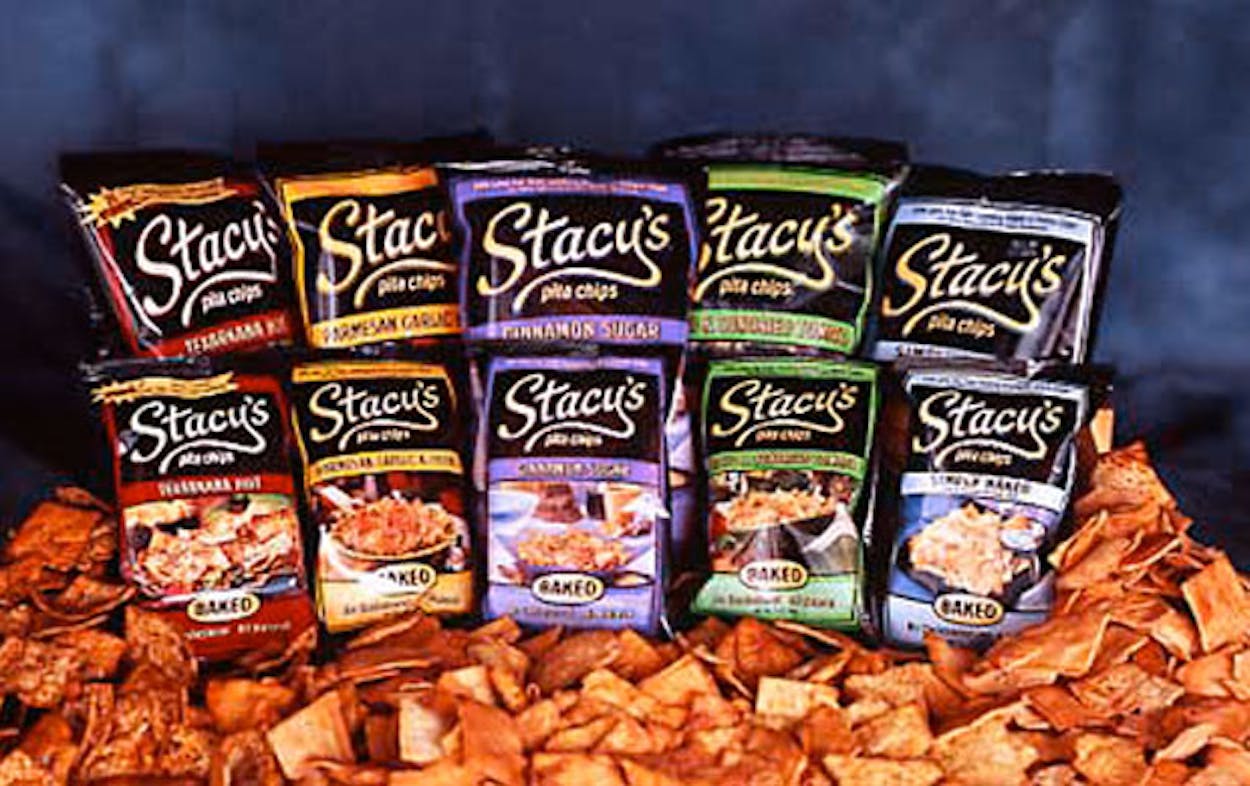The Texas economy is one of the most robust in the world. Wildly profitable companies and ingenious entrepreneurs call this state home, and what happens here influences businesses around the nation. Here’s a slice of the profits, losses, big deals, and backroom decisions happening across Texas this week.
Lay of Luxury
Feeling the crunch of falling soda sales, PepsiCo is reconfiguring its marketing strategy to focus on the high and low ends of the snack market. Plano-based Frito-Lay is leading the charge, adopting what the New York Times calls a “1 percent-99 percent strategy” by emphasizing high-end products (such as pita chips, dips, nuts and whole-grain snacks) as well as “value” items like low-priced tortilla chips and the immortal Cracker Jack.
A Frito-Lay spokeswoman told the Times that the new strategy is a reaction to a growing divide among consumers: “The rich are getting richer and the poor are getting poorer.” An aging population and a shift in ethnic demographics were other factors in the company’s decision to shift focus.
The Bottom Line: Pepsi has the numbers to back up its claims. While growth in the middle of the salty snack market is stagnant, the premium end has grown about seven percent in the last two years, and the bottom segment is expected to grow by four percent annually in the years ahead, the Times reports.
Turm-Oil on the Gulf
The largest oil refinery in the U.S. is operating at less than half capacity after a fire caused by a mechanical failure damaged a critical piece of equipment. The Motiva Enterprises refinery in Port Arthur, a joint venture between Saudi Aramco and Royal Dutch Shell, recently underwent a $10 billion expansion that might not be operational again for several months, according to the Wall Street Journal. The shutdown is costing the plant’s owners about $1 million a day in lost revenue.
The Bottom Line: The Journal reports that gas prices could increase as a result of the shutdown, which coincides with the start of the summer driving season.
Due Dell-igence
Dell announced this week that it plans to reduce expenses by more than $2 billion within three years, primarily from its sales group, factories and suppliers. The Associated Press reports the decision is tied to the Round Rock–based company’s attempt to diversify into “more lucrative fields” such as technology consulting for large companies and government agencies.
The Bottom Line: Dell also announced that it will pay out a quarterly dividend for the first time in its history in an effort to “help retain current shareholders and lure institutional investors as the company works to revive sales,” Bloomberg reports.
T-See-You in Court
A month before TCU officially completes its transition to the Big 12 Conference, it is facing a lawsuit filed this week by a spurned suitor. The Big East Conference claims the Fort Worth school agreed in 2010 to pay $5 million if it failed to join the organization, but TCU has not made the payment since reversing course and committing to the Big 12 late last year, Bloomberg reports.
The Bottom Line: In its official response, TCU claimed its “administrators were surprised by this lawsuit and believe it is premature.” The university is scheduled to join the Big 12 on July 1 and will begin competing in athletic events this fall.
Winner of the Week: Vladimir Putin
To keep his promise to maintain a steady level of oil production in his country, Russian President Vladimir Putin is turning to Texas for help: He is in talks with Irving-based Exxon-Mobil “to help drill oil fields in Siberia that may hold almost half the proved reserves of the U.S., extending the petroleum boom that underpins his power,” Bloomberg reports. Under such an arrangement, Exxon would provide the technology required to access hard-to-reach reserves via hydraulic fracturing, or fracking.
Earlier this year, Exxon CEO Rex Tillerson said that “developing unconventional geologic formations around the world will become a ‘cash cow’” for the company, according to Bloomberg. In addition to the arrangement with Russia, Exxon is also eyeing projects in China and Argentina.
Loser of the Week: The Emerging Technology Fund
Austin startup NanoTailor Inc. announced its bankruptcy on Thursday, making it the third company supported by the Emerging Technology Fund to go under. Citing inadequate progress, the state cut off money to the business in January 2011, and NanoTailor—which was in line to receive another $1 million in addition to an initial $250,000 investment—never reapplied, reports the Associated Press. The company manufactured components for the aerospace and pharmaceutical industries.
The ETF “has given $192 million early-seed funding to more than 130 companies,” $2.5 million of which has been funneled into failed investments, according to the AP. There is about $60 million remaining in the fund for future projects.






